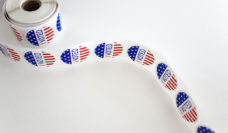As of 2019, 43 states enacted laws that limit local authorities’ ability to regulate guns or ammunition. Fifteen states banned local action on plastic bag use. And 11 states prevented sanctuary policies designed to protect American immigrants.
State lawmakers from both parties use preemption as a tool to limit local power. In the past, preemption was used to protect against conflict between local governments or to ensure regulations were applied uniformly. Today, preemption has become a dangerous tool for sewing dysfunction between state and local governments.
The growing reach of preemption laws also highlights the importance of Americans’ participation in state and local elections. Only 60% of registered voters voted in the 2018 state election race in Massachusetts, down from 75% in 2016. Only 21% voted in local (city) elections.
But the number of new preemption laws has skyrocketed in recent years. A new report highlights the growing number of state-level laws enacted across the country to preempt cities, towns, and counties from enacting local ordinances tailored to local needs and political preferences. The trend is limiting local government regulation and consolidating power at the state. For example, in 2019 North Dakota became the 26th state to preempt local minimum wage laws.
This push to consolidate power at the state is not accidental. The American Legislative Exchange Council is an industry-funded organization that writes and distributes model bills in the interest of lobbyists from a variety of industry areas. The organization has been successful at pushing laws through state legislatures in part because of Citizens United, a 2010 Supreme Court case that protected political spending as speech under the First Amendment of the Constitution.
Today, preemption has become a dangerous tool for sewing dysfunction between state and local governments.
The decision was and is controversial, allowing corporations to spend unlimited amounts of money on political activities if done independent of a party or candidate (i.e. through a political action committee, or PAC). The ruling not only opened the door for sky-high spending on congressional and presidential races, but opened the same door in state races, directly affecting the composition and political leanings of state legislatures.
Research shows that removing spending limits typically leads to ideologically more conservative state legislatures. Passing state preemption laws are an easy target for powerful industries with deep pockets. It’s more efficient to push policies at 50 state capitals than in 19,000 cities and over 3,000 counties. Without bans on spending limits, an imbalance of power between local corporate and labor interests may develop where the former consistently outspends the latter in state and local elections.
Every year since Citizens United, more state preemption laws have been enacted. As this happens, further limiting local authorities’ ability to enact equity-promoting policies grows more restricted. Twenty-three states have banned local paid sick leave requirements that benefit often marginalized groups, like women and people of color. Texas filed 62 preemption bills in 2019 alone, which prevent their more progressive urban areas (Austin, Houston, and Dallas) from passing local laws in line with their residents’ and city policymakers’ political preferences.
Preemption laws are affecting numerous policy areas that vary from regulating e-cigarettes to soda bans and taxes to controlling the rise of rent in urban areas. Some states have gone so far as to enact laws that punish local authorities for attempting to implement policies that conflict with state law, especially those related to establishing sanctuary cities.
Given the current gridlock of the federal government, it is more important than ever to participate in state and city elections which are likely to influence the realities of daily life profoundly
Photo by Joshua Sukoff on Unsplash














